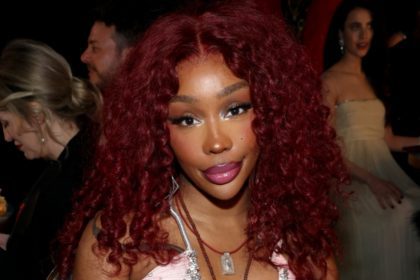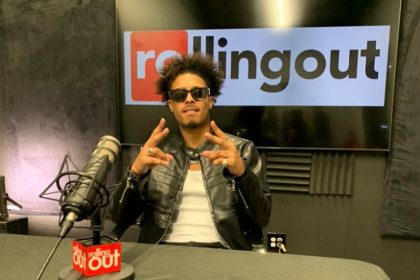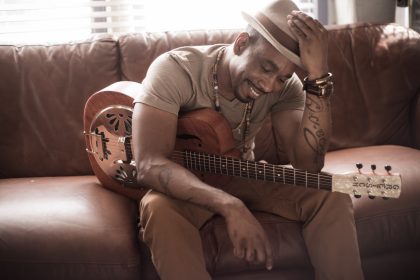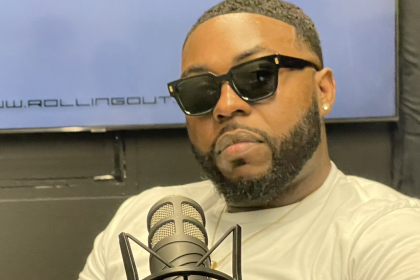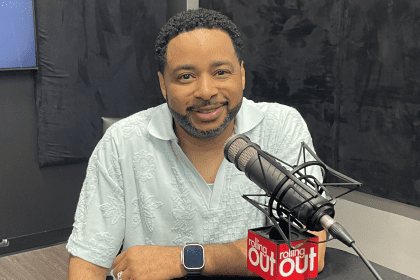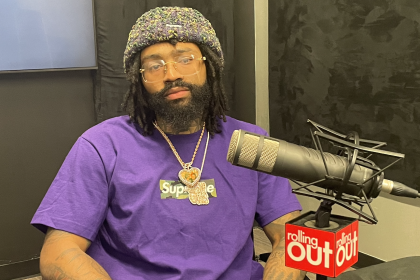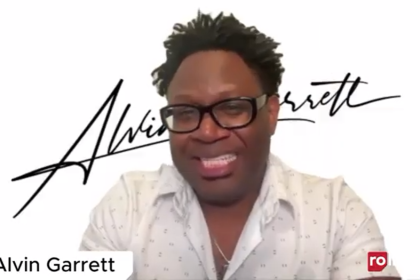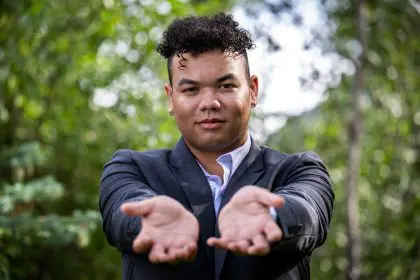Raheem DeVaughn’s fifth album, Love, Sex & Passion, finds the veteran soul singer embracing bumping and grinding in a more direct way than his fans may expect. DeVaughn spoke to rolling out about this project and admitted that he was focused on the bedroom while crafting this project.
“I think this is my most sexual album. But still poetic,” he explains. “I try not to paint … what I think the experience should be for the listener. The message that I want to convey; I want it to be passionate, poetic, endearing — sexual, but in a 50 Shades of Grey kind of way. Erotic. I think I really captured that on this album but at the same time talking about love, sex and passion — breaking it down like a storyline with it. Like a movie or film or play that deals with love, sex and passion.”
Aside from the sexuality, DeVaughn also says that he wanted to convey a man’s vulnerability. With so much urban music that emphasizes machismo, he believes that a man singing about his heartbreak holds a special kind of weight in contemporary music. “I got a couple of heartbreak songs on there,” he says with a laugh. “[So-called] ‘begging records.’ My fans haven’t heard me convey my feelings like that on a record. Letting men know that it’s cool to be vulnerable and [lose] all of these ‘a man ain’t supposed to cry’ stereotypes. Even in a lot of hip-hop music, they tell you don’t give your heart to a woman. But many of the most successful rappers are head-over-heels in love. It’s letting the fellas know that it’s cool to be vulnerable and respect the women. You ain’t gotta call ‘em ‘b—-es’ and ‘h–s’ and that type of thing.”
With almost 15 years of experience in the industry and 10 years after The Love Experience, his debut album, Raheem DeVaughn has learned how to balance giving his fans what they expect from him while also satisfying his own need to create and push himself artistically. That balancing act isn’t an easy one to master; but he feels he’s gotten a pretty good handle on making both sides of the performer/artist binary work in a complementary way.
“I balance it pretty well. The key is keeping a pulse on what’s going on musically and on what’s going on in the world. And keeping a pulse on who you are and the values that you were raised on. It’s really defining what I want my message to be and how I want to be interpreted,” he says.
“When we put the first album out, it was kind of like an experiment because you don’t know if it’s going to fly or stick and you don’t know what’s going to happen,” DeVaughn explains. “A lot of people put out an album and you never hear from them again. They’re working a day job or doing whatever to survive through life. So for me, it was like ‘Am I gonna have a career out of this?’ There was a chance to see if my life would be centered around music and if this would be how I would take care of my family. So to stay creative and innovative — those are the things that keep an artist going.”
So when is Raheem DeVaughn happy with what he’s created in the studio?
“When I can ride to it,” he says. “And I got people that I play it for and test it out or whatever. I got people around me that I consider [to be] trustworthy and I know they’re going to give me their honest opinion. I try to stay away from yes-men in my crew of immediate friends and peers. You got people that will tell you you’re the greatest ever; but I need people that can tell me where I need to improve. I can respect the honest opinion.”
DeVaughn takes his career seriously — in every aspect. Which is why he understands that he has to sustain that career while also satisfying his creativity. He’s learned how to focus on his craft, because he doesn’t have the luxury of coasting on reputation and letting his career lull. The longest gap in DeVaughn’s career was between 2010 and 2013, during which he exited Jive Records to take control of his career as an independent artist. He re-emerged with A Place Called Love Land and hasn’t looked back. He’s focused on his future, his art and his family.
“I don’t allow people to kill my vibe now,” explains the singer. “If that means I gotta lie about being outta town and I gotta create — whatever I have to do to protect the artistry, then I do that. Even if I have to shut the phone down or whatever. It’s a balance, of course, most importantly being a father and also being an only child. That’s tremendous. You’ve got to juggle that and maintain that. At the end of the day, if I’m not at my best, a lot of stuff don’t [sic] move.”


